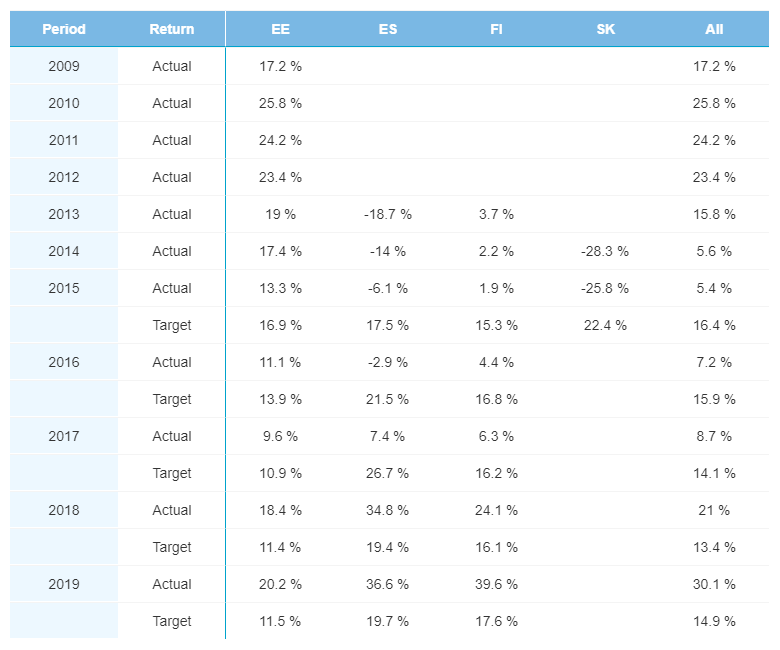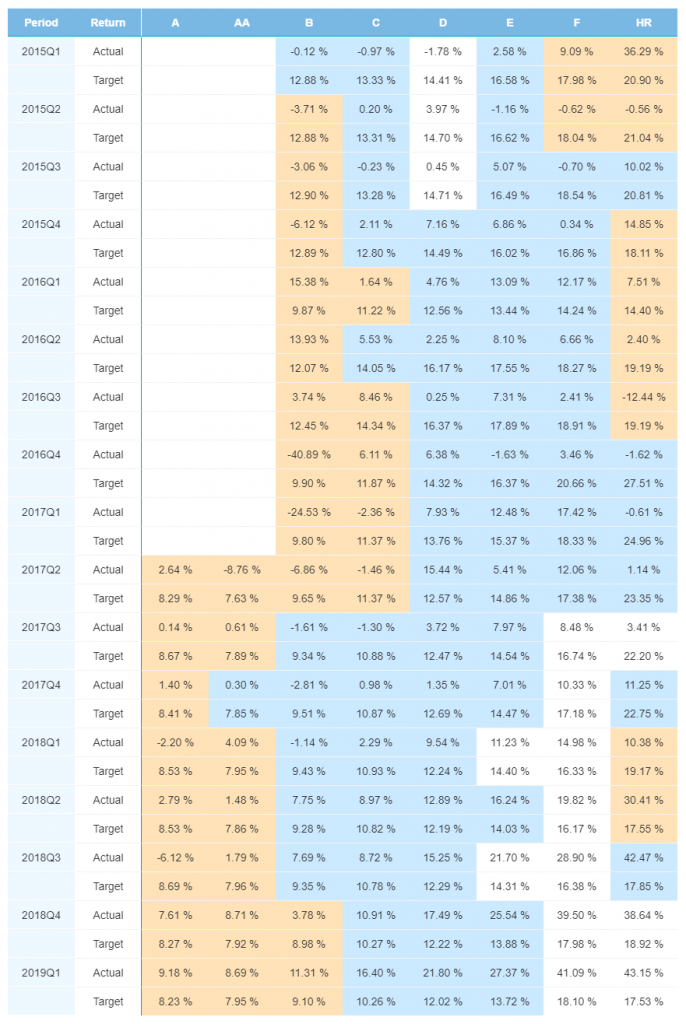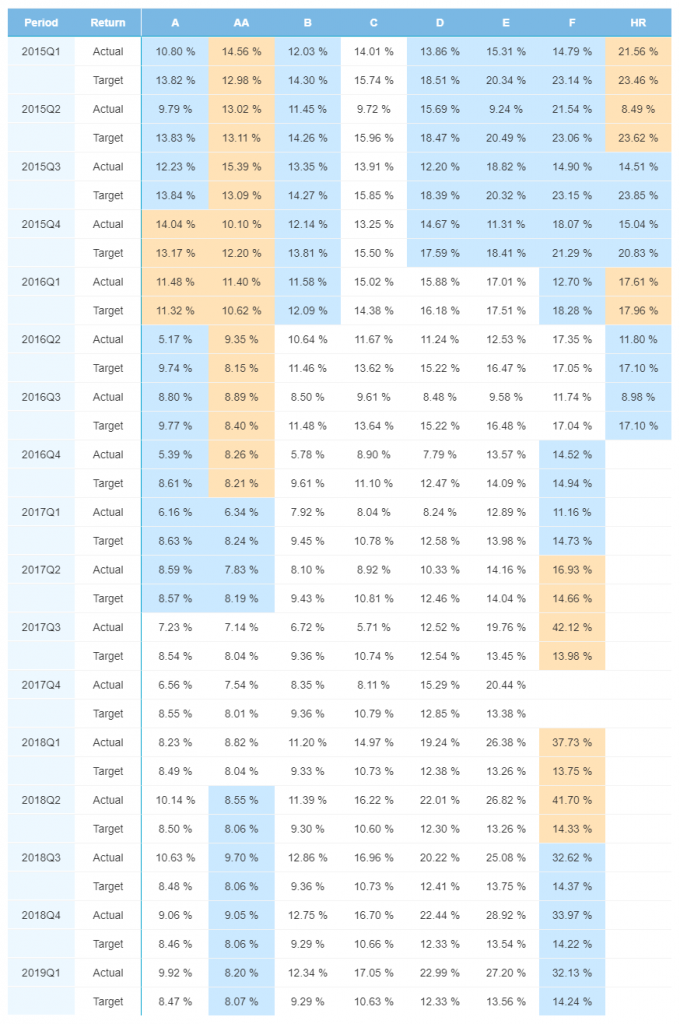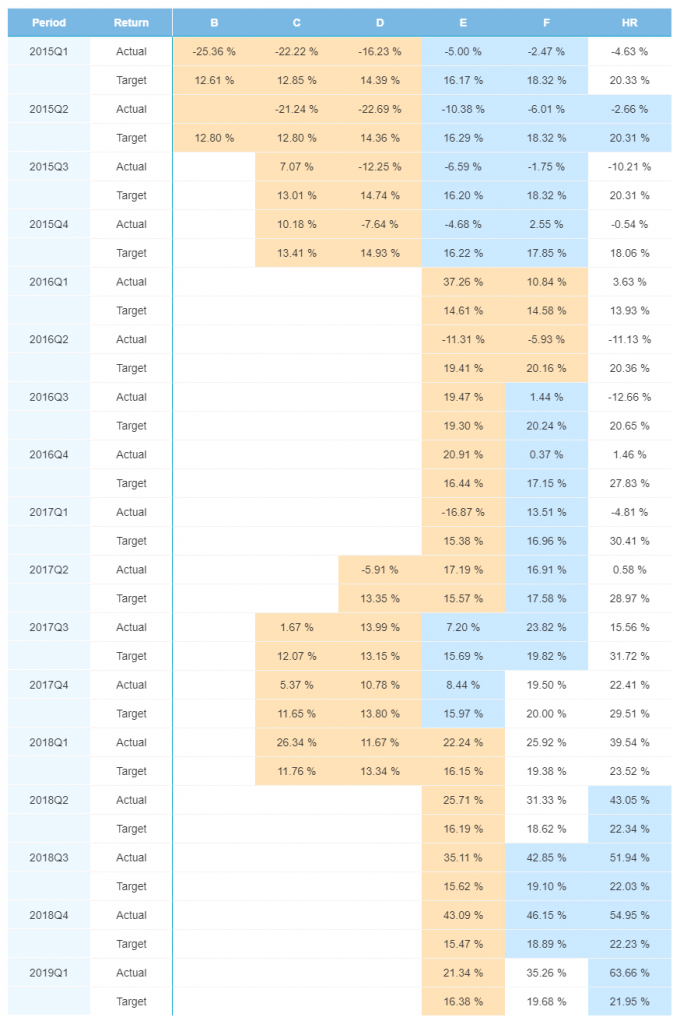Halfway through 2019 and Bondora loans are performing extremely well compared to their target return rates. The Bondora portfolio of loans is performing better even than last month, as returns are solid across the board.
As always, performance charts by country are broken down by number of loan issuances over the given period, with Orange representing <50 loans, Blue 51-200, and White >200.
Yearly Performance
The 30.1% yearly return rate seen in June is 8.7% higher than in May, and is more than double the 14.9% target rate for 2019. The biggest contributor to higher returns is from Finnish loans, which had a 39.6% yearly return rate on the month, compared to 24.8% yearly return rate last month. Both Estonian and Spanish yearly return rates grew slightly as well.

Quarterly Performance
The initial quarterly return numbers for the first quarter of 2019 were released in June, and the results were quite positive. A 30.1% return rate for Q1 2019 is well above the 14.9% target rate. Meanwhile, return rates for all four quarters of 2018 fell by 1% or less, as returns for the previous year seem to be stabilizing.

Finland
The distribution of loans in Finland were similar to that of the previous quarter. The categories with the most loan issuances (F and HR) are also the categories performing the best, with returns more than 20% above their target rates.

Estonia
All Q1 2019 return rates came in above their target rates. Even the lowest returning category in Estonia, 8.2% for AA rated loans, is still a solid rate. Returns for Q1 2018 originations fell slightly across the board, yet were higher than target returns for all rating categories.

Spain
More F rated loans were issued out of Spain in Q1 2019 than the previous two quarters, yet the return rate for this category remained high at 35.3% in June. Returns for E rated loans in Q4 2018 were higher, up to 43.09%

Economic News
Brexit is putting pressure on European heavyweight Germany to inject more money into the European economy to avoid a recession. This viewpoint is being pushed heavily by France. French Finance Minister Bruno Le Maire sees a huge need to invest in infrastructure during this time. ”It would be irresponsible not to examine the need for new investments in the euro zone…Now is the time to invest in innovation and infrastructure, not in social spending.” Still, growth in the overall European economy was stronger than expected over the first quarter of 2019. For the year, GDP growth in the region is expected to remain at 1.2%, with growth for 2020 revised down by 0.1% to 1.4%.
Finland is focusing its efforts on building a zero-waste economy to combat climate change in the region. The country is hoping to become carbon-neutral by 2035 by investing significantly in alternative energy sources, electric vehicles, and pushing citizens to recycle and reuse materials to minimize waste.
More than four years since introducing its e-residency program, Estonia has collected more than €18 million ($20 million) in taxes and fees from the program. This comes from the 55,000 e-residents and 6,500 companies founded as a result of e-residency in the country. It appears Estonia is on its way to its original goal of 10 million e-residents by 2025. To do so, Estonia is already improving the program after receiving feedback from participants. ”For instance, we know that access to banking services remains an issue for e-residents,” program director Ott Vatter told ZDNet. “As a first step, we’ve already amended the Estonian Commercial Code to enable e-residents to use any bank or any fintech company from EEA [European Economic Area] to execute any business operation, including the payment of their share capital.”
Despite negative economic sentiment among some experts, Spain’s economy continues to outperform. Spanish economic growth is on pace to surpass most western economies in 2019. As a result, the Bank of Spain raised its GDP growth outlook for 2019 to 2.4%. Ignacio de la Torre, chief economist at Arcano Partners, likes what the Spanish economy is doing. “We’re generating jobs more than twice as fast as the eurozone and the U.S,” he said. “The fundamentals are good. There’s no problem with overheating or imbalances.”

